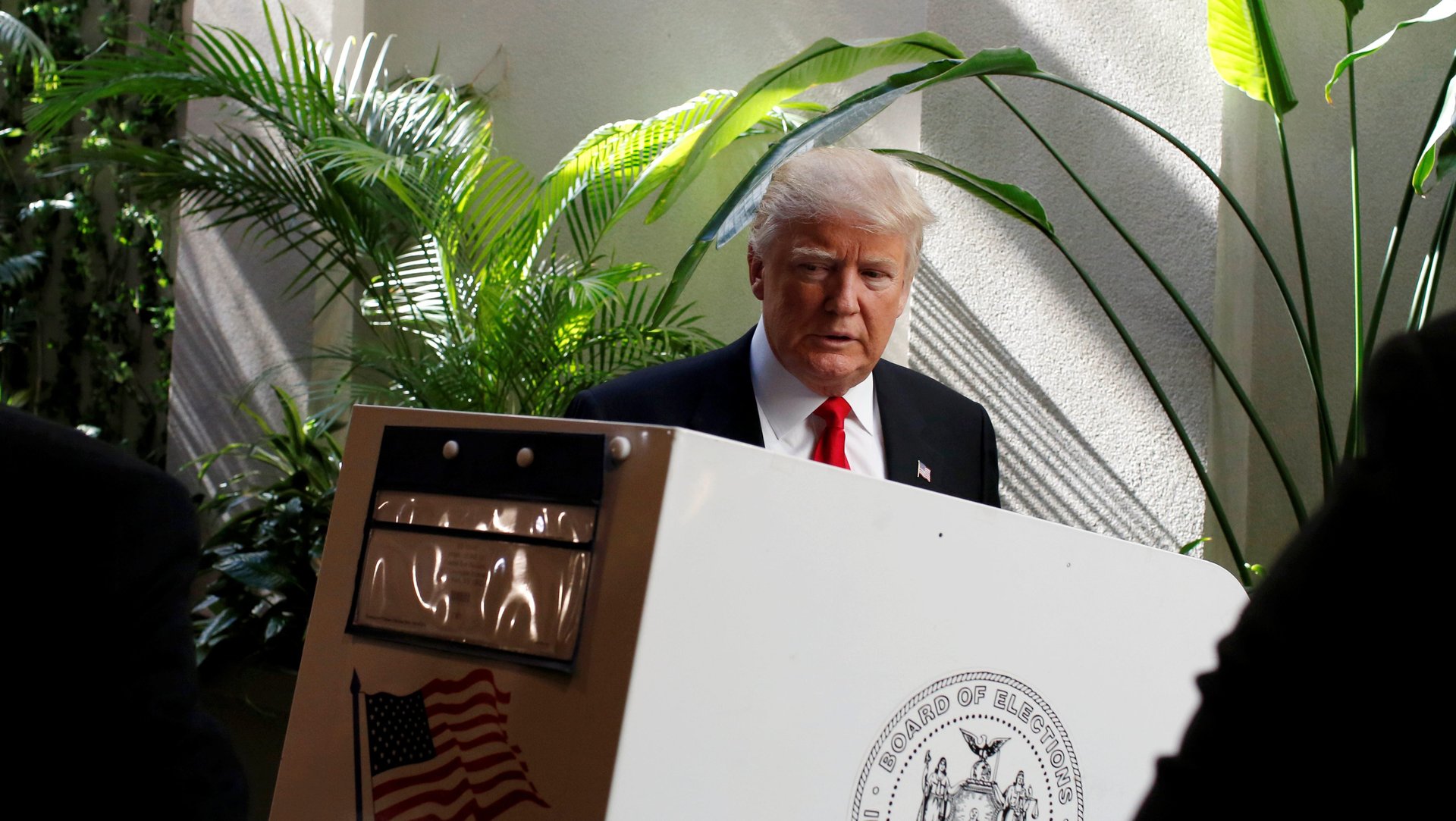In New York’s ritzy Upper East Side, some like Trump—but others want to send him to a therapist
If there is any New York area where many voters fall into Donald Trump’s tax bracket, it would be the city’s Upper East Side. But on the afternoon of primary day on April 19, more voters appeared to favor New York’s former senator, Hillary Clinton—even if they showed a surprising affinity for socialist Bernie Sanders.


If there is any New York area where many voters fall into Donald Trump’s tax bracket, it would be the city’s Upper East Side. But on the afternoon of primary day on April 19, more voters appeared to favor New York’s former senator, Hillary Clinton—even if they showed a surprising affinity for socialist Bernie Sanders.
Standing in front of a middle school that was the polling location for some of New York’s fanciest addresses, I spoke to many retired voters who used to be in advertising, business, law, and entertainment. And I heard from many a well-dressed older woman in huge sunglasses that Clinton was the most qualified candidate out of the pack.
“Hillary is the only qualified person,” said Susan Silver, a television writer and a host of a radio show. “Bernie is not realistic. There is no free lunch.” Joan Cassidy, a retired nurse practitioner who came to vote with her husband, a retired executive, said that she was “voting for Hillary 1000%.”
I was standing a 10-minute cab ride from Donald Trump’s lavish residence on 5th Avenue, and he did have some neighborly support. “I think he is a straight shooter,” said Adeline Krasinski, who is retired. “He’s been a success in his own business and he can carry it through to the White House.” Louis Diaferia, a Trump supporter who used to own a restaurant, said he was ”sick and tired” of the establishment. “Everything is a total mess, we need someone who can fix things,” he said.
When I asked a woman in heavy pearl necklace about her voting preferences, she deflected to her expensively-suited husband, who said they were voting for Trump: “He’s good, strong.” The man would not give his name, but said he was “in private equity.”
Others had some choice words for the billionaire, and even wanted to send him to therapy. “Donald Trump is boorish, disgusting, a bigot,” said Elaine Brodey, who was in advertising and entertainment before she retired. “He’s a classic case for psychoanalysis.” Anita L Jones, a retired event planner said that Trump was “absolutely out of his mind.”
A college professor who preferred to stay anonymous said that she felt sorry for Trump. “Mentally, I think he’s off,” she said. Two professionals I encountered outside the voting location agreed on a cursory diagnosis. “Trump is sick, and I’m a psychotherapist. He’s a narcissist,” said Linda, who also declined to give her last name.
Earl, a psychiatrist and dancer, voted for Sanders. He said that Trump “knows how to play with people’s minds. He goes for the soft spot and motivates them to appreciate his narcissism.”
The conversations I had roughly aligned with statistics. The Upper East Side is among New York’s most Republican neighborhoods, but the majority of voters are still Democrats (a 2014 survey by an apartment review site showed that 22% of the neighborhood’s residents were registered as Republicans.) Out of the approximately twenty people I talked to, only one was a John Kasich supporter, zero were for Ted Cruz, and only one was a Sanders supporter.
However, a number of these likely quite affluent voters who said they would vote for Hillary expressed a liking for Sanders. Joanne Farber, an attorney voted for Hillary because of the candidate’s experience. “She’s by far the most qualified,” she said, even though she added that she “loved Bernie.”
“I think she’s amply qualified. Bernie has a lot to offer, I don’t think the implementation of his plans will be very easy,” said Bill Kaufman, a retired ad man.